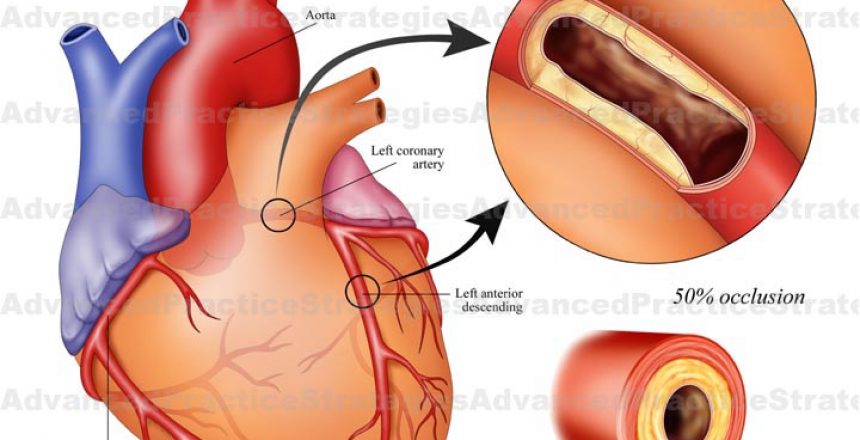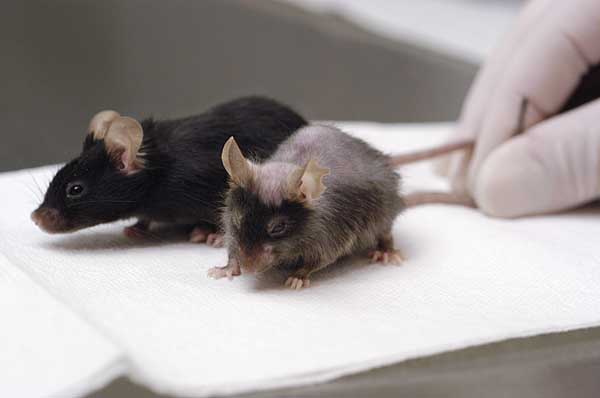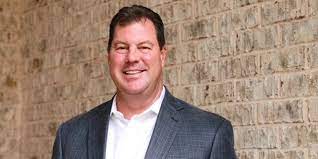Intermittent fasting — the practice of going without food for any period of time longer than about 12 hours, including sleep time — has many benefits. Among them are fat loss, better insulin sensitivity, and a profound anti-aging effect — and intermittent fasting decreases heart disease risk, dramatically.
Mormons have less heart disease
A study done among Mormons also found that fasting has a huge effect on heart disease, the number one killer in the U.S.. Those Mormons who fast lowered their risk by nearly 50%.(1)
The study looked at people in Utah who presented at an angiography clinic. Data was collected and analyzed.
Mormons commend fasting at least once a month.
Among the Mormons who practiced fasting, the odds ratio of heart disease was 0.55, when compared to other Mormons who did not fast.
Interestingly, among adherents of other religions, fasting reduced the risk of heart disease even more, by 77%.
The authors of the study offer several possible explanations for their findings.
How intermittent fasting prevents heart disease
1. Fasting is associated with other beneficial behaviors, all linked by self-control. Most people won’t fast at all and believe it too difficult — even though it isn’t. But those who do fast probably do have more self-discipline, and this carries over into other behaviors, such as eating less overall.
2. Metabolic factors — the authors believe this is the best explanation. Fasting results in better insulin sensitivity, and insulin resistance is strongly associated with heart disease.
3. Hormesis. Fasting activates cellular stress-defense mechanisms, which in animals results in longer life.
4. Fasting is a surrogate marker for other behaviors. But the fact that fasting was strongly associated with less heart disease among other religions, “suggests that the observed benefit arises from fasting and not from a cluster of religion-associated behaviors.”
5. Another possibility, not mentioned in the study, is that intermittent fasting increases autophagy in arteries. Older people have impaired autophagy, the cellular self-cleansing process that rids cells of junk and keeps them in a youthful state. Age is the most significant risk factor for heart disease. It’s been shown that impaired autophagy causes reduced endothelial function — meaning that arteries become old and not as useful.(2) People who have had a heart attack show lower levels of autophagy.
Therefore, if you boost your cellular self-cleansing through intermittent fasting, you end up with cleaner, younger, elastic, and unplugged arteries.
Years ago, I read the book by Dr. Joel Fuhrman on fasting (I no longer have it so I can’t quote it). Dr. Fuhrman claimed that fasting could cure coronary artery disease, and claimed some actual cures. The idea is that fasting almost literally melts away lipid deposits in arteries.
No doubt it’s a bit more complicated than that, but it leaves open the idea that fasting could not only prevent, but cure, heart disease. I know that if I had heart disease, I’d be fasting like a yogi on a mountain top.
Doctors won’t tell you to fast
Of course, if you do have heart disease, or just want to prevent it, don’t think your doctor will suggest intermittent fasting. It’s just not on the medical radar. You’ll be offered drugs instead — statins, probably.
There’s no money whatsoever in promoting intermittent fasting, either for a doctor or for drug companies. (Which is one reason they won’t tell you about the dangers of iron.)
Intermittent fasting isn’t on the radar of almost anyone either, doctor or not. Most people seem to believe that if you miss a meal, you’re “starving”. We’re conditioned to eat every few hours, whether we’re hungry or not.
So, if you want to prevent the number one cause of death and disability, try intermittent fasting. A 16/8 schedule is easy to implement, can be done daily or however often you want, and will do the job.














13 Comments
pheew, glad I did 22 hours IF yesterday. Of course doctors don’t know about IF. No-one taught them in medical school. Besides, a patient cured, is a customer lost….
I saw my doctor a couple months ago. He had not heard of IF either, though I explained how it and my weight training routine enabled me to lose 60 lbs and eliminate the need for blood pressure meds. At no point during my treatment for hypertension did the doc offer a diet plan or even order me to lose weight (yes, I should have known myself, but whatever). When I did ask about a medically supervised weight loss plan, he just wrote a script for Qsymia, a dangerous, possibly psychoactive drug that my insurance didn’t cover and was too expensive to purchase out of pocket.
Thanks for the article PD. Re fasting and autophagy, 2 interesting studies I read:
1) Short-term fasting induces profound neuronal autophagy https://www.ncbi.nlm.nih.gov/pmc/articles/PMC3106288/
2) Fasting activates macroautophagy in neurons of Alzheimer’s disease mouse model but is insufficient to degrade amyloid-beta
https://www.ncbi.nlm.nih.gov/pubmed/26169250
The latter is particularly interesting, but they only fasted mice for 48 hrs – not enough imo – and they used a very strong Alzherimers virus. Even so, extracellular amyloid-beta accumulation was decreased in visual cortex (arrows) after 48hr fast
Also, don’t know if you follow Peter Attia (M.D.), but he is quite well known in the low-carb community and recently posted an elaborate post on heart disease. He is one of the few others I follow regarding health and nutrition
https://eatingacademy.com/cholesterol-2/heart-disease-begin-tell-us-prevention
For quite some time I have been doing around 21 hours most days. I am wondering if that is too much? Most people don’t do it every day.
Joseph, what your doing is similar to the “Warrior Diet” I believe, basically eating only once a day. I don’t see a problem with doing that as often as you want. As Dr. Jason Fung notes, if you feel ill at any time during a fast, you should stop.
I also see no problem in “once a day meal”. The only problem is that I tend to cramp too much food into a very small window of eg. 2-3 hours. Once I get started eating, it’s non-stop for 2-3 hours…
Btw., at a certian point in time, when enough macrophages have been borken down and recycled, mTor is re-activated. I’m not sure though, at which point in time this occurs, but it does occur.
PD I’ve looked into EDTA and its chelating properties and use in the new toothpaste (livionex) where EDTA chelates calcium (IIRC) and thus removes plaque.
I am fairly sure the same concept could be applied in atherosclerosis, given that calcium is involved in artery plaques.
There is evidence that EDTA chelation IV therapy reduces plaques in atherosclerosis
https://www.life-enhancement.com/magazine/article/78-edta-chelation-the-real-miracle-therapy-for-vascular-disease
Hi Ted, I believe that’s absolutely correct. Even oral EDTA seems to work for atherosclerosis, although it’s much slower acting. One of the ways it seems to work is by chelating heavy metals such as cadmium and lead, which appear to be highly involved in atherosclerosis. Heavy Metals, Cardiovascular Disease, and the Unexpected Benefits of Chelation Therapy. Thanks for reading and commenting.
Also ties in with Ivor Cummins’ speech on calcification of arteries and its relation to heart disease
I’ve done intermittent fasting ever since starting a ketogenic diet to lose weight over three years ago. This is basically OMAD (One meal a day) usually, and included two non-consecutive 36 hour water fasts during the week. After two years, I started trying out longer fasts, usually 60 hours on the weekends (from Friday’s supper, to a “breakfast” on the following Monday).
Keep in mind, eating a low carb diet, with all this intermittent fasting, and even longer two plus days of fasting, there really wasn’t a whole lot of “autophagy” going on. I know this because I had a fat tumor (a lipoma) on my right elbow for over the last decade that didn’t budge.
Then after seeing other people’s reports on doing “extended fasting” (a week or more) on a facebook group I belong to, I decided to take the plunge and just try it. I did a full seven days my first try, which wasn’t really that hard. I didn’t notice it at first, but then my wife asked what had happened to my elbow. That fat tumor had shrunk quite a bit. So about a month later, I did a two week long water fast. THE TUMOR WAS COMPLETELY GONE! I’m not saying this will outright cure full blown cancer, but it will get rid of “pre cancerous tumors”, which is where most cancerous tumors come from. So it is cancer preventative in certain ways.
While autophagy IS REAL, it really doesn’t get going in me until at least 3.5 to 4 days without any food. I’m sure that IF, and even two or three day fasts are helpful, but they’re merely a shadow of the “true power of autophagy” that is experienced during a long term fast.
I can even track it with a BG meter. As soon as my BG gets down to 65 ml/dl, I know I’m in full blown autophagy mode. In this mode, you can practically drink poison and not get sick. This is because your normal cells basically hunker down, and do not divide during periods of starvation. With prolonged lack of nutrients the cellular processes such as Mtor are down regulated, HGH and Fox03 are upregulated (which is what initiates autophagy).
By doing this, you can make chemotherapy down right easy on patients, because there is almost no associated nausea (vomiting) or diarrhea when you are fully fasted before doing that. This should be the protocol for all chemotherapy, but most doctors do the exact opposite, feeding chemo patients instead fasting them (they need those calories ya know). Worse yet, they be feeding them carb & sugar laden meals.
This is actually proven in the film “The science of fasting” available on amazon.com. About 40 minutes in they talk with Dr Valter Longo out of UC Davis, and various cancer patients who’ve followed this fasting protocol prior to doing chemo. He gave fasted & non-fasted mice a 3 to 5 times normal dosages of a chemo drug (very lethal doses). ALL of the fed mice died within a day. None of the fasted mice died.
Long term fasting has some rules, and you can even hurt yourself if you don’t follow them. Basically, you need to take a magnesium supplement (magnesium citrate), and potassium (potassium chloride mixed with salt) so that you don’t have muscle cramps or develope a heart arrhythmia. The refeeding protocol is also strict, in that it should be small, high fiber, and ketogenic (no high carb/sugar pig outs), unless you like having “disaster pants”. Large carb loaded meals during refeeding can also lead to “refeeding syndrome” which many holocaust survivors died from when liberated from the camps (mostly a combination of a lack of essential minerals and bad refeeding practices).
Dr Jason Fung has written some good books on fasting if you want to learn more…